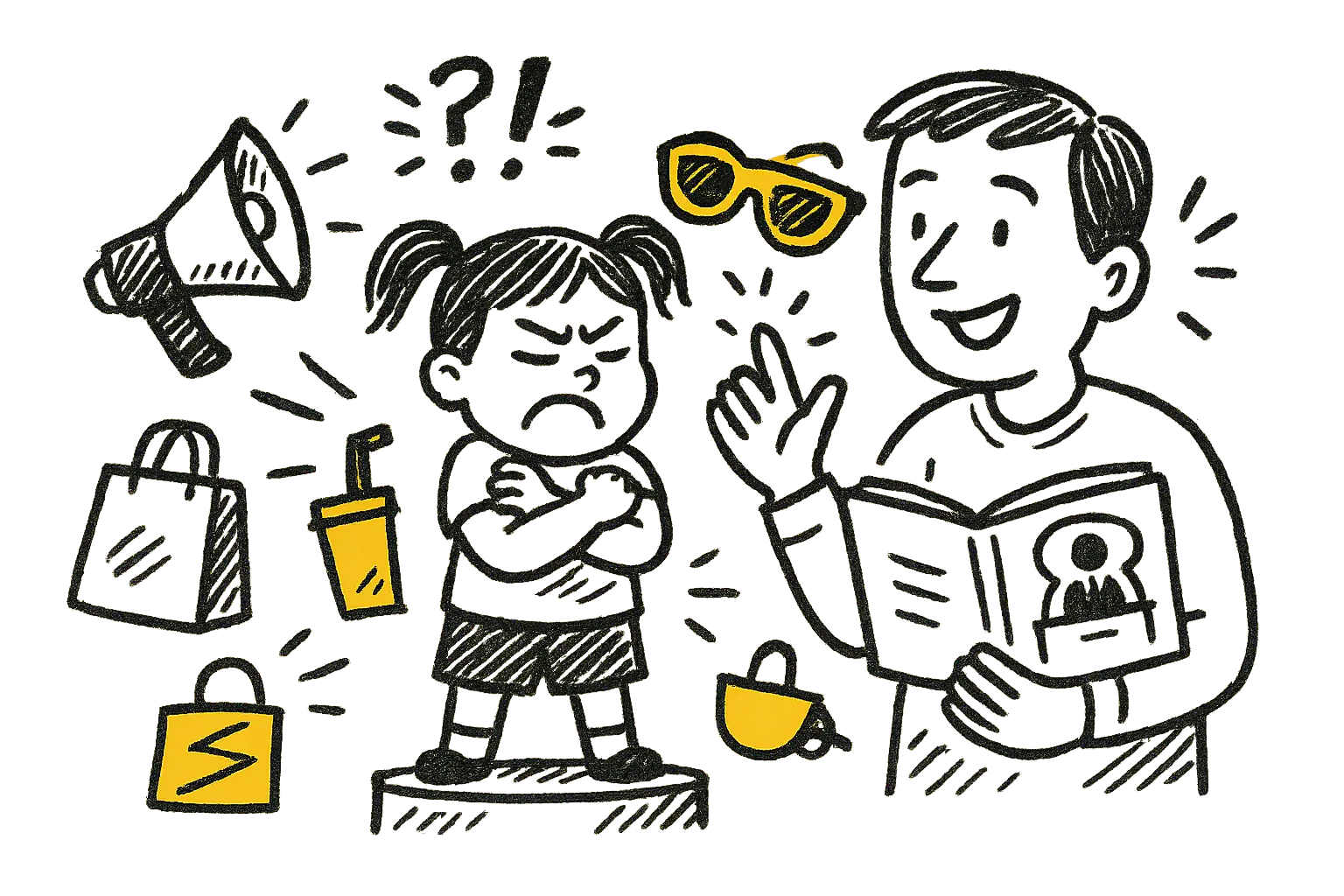How to Raise a Karen

Every parent wants to raise a kind, confident kid. But what if your ambitions are bigger? What if you want your child to grow into something truly iconic — a full-fledged Karen?
It’s easier than you think.
Step 1: Entitlement Training
Start young. Make sure every minor inconvenience feels like a personal betrayal. Juice in the wrong cup? Outrage. The wrong brand of mac and cheese? Tears and finger-pointing. A future Karen should believe the world exists to meet their preferences — and that failure to do so is a moral offense. Developmental psychologists would call this “egocentrism” — normal in toddlers, but not so charming at forty.
Step 2: Preserve the Tantrum
Most parents hope their kids grow out of meltdowns. Not you. A tantrum is a seed. Water it. Protect it. Let it blossom into the adult version: a public spectacle at the returns desk, complete with huffing, eye-rolls, and “I’m never shopping here again.” Research shows that kids who aren’t helped to regulate emotions often carry that reactivity into adulthood, with higher rates of conflict and stress.
Step 3: Manager Mantras
Forget Goodnight Moon. Tuck your child in each night with the sacred phrase: “Can I speak to your manager?” Repeat until it’s second nature. By middle school, they should already have a running tally of “unprofessional tones” they’ve reported to authority figures. Social learning theory tells us that kids model what they see — reward the act of escalation, and they’ll practice it until it becomes habit.
Step 4: The Signature Look
Every superhero has a costume; every Karen has the haircut. Add oversized sunglasses and a purse the size of a small carry-on, and you’ve completed the transformation. The goal isn’t fashion — it’s recognizability.
But here’s the thing: the Karen isn’t just a haircut or a meme. She’s a symptom. A symptom of how unchecked entitlement, weak emotion regulation, and modeled outrage get baked into adulthood. Studies link higher entitlement with lower empathy and more interpersonal conflict. It’s less about a single personality and more about habits that were never challenged.
So what’s the alternative?
Satire aside, parents really do have choices. Teaching kids to name their feelings instead of exploding, modeling respectful ways to disagree, and giving them boundaries that stick all help buffer against the “Karen effect.” Programs that emphasize self-regulation, like emotion coaching, show kids can actually learn patience and empathy if adults practice it with them.
Yes, you can raise a Karen. Or you can raise a human who knows the difference between being assertive and being entitled.
But let’s be honest: empathy rarely goes viral. Outrage does. And that might be the bigger cultural problem.
References
- Bandura, A. (1977). Social Learning Theory. Englewood Cliffs, NJ: Prentice Hall.
- Flavell, J. H. (1992). Cognitive development: Past, present, and future. Developmental Psychology, 28(6), 998–1005.
- Grubbs, J. B., & Exline, J. J. (2016). Trait entitlement: A cognitive-personality source of vulnerability to psychological distress. Psychological Bulletin, 142(11), 1204–1226.
- Gottman, J. M., Katz, L. F., & Hooven, C. (1997). Meta-Emotion: How Families Communicate Emotionally. Mahwah, NJ: Lawrence Erlbaum.
- Moffitt, T. E., Arseneault, L., Belsky, D., et al. (2011). A gradient of childhood self-control predicts health, wealth, and public safety. PNAS, 108(7), 2693–2698.


Member discussion